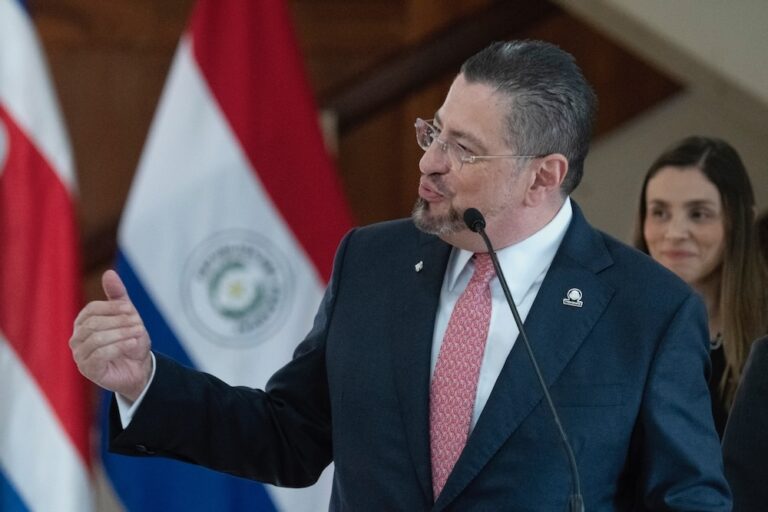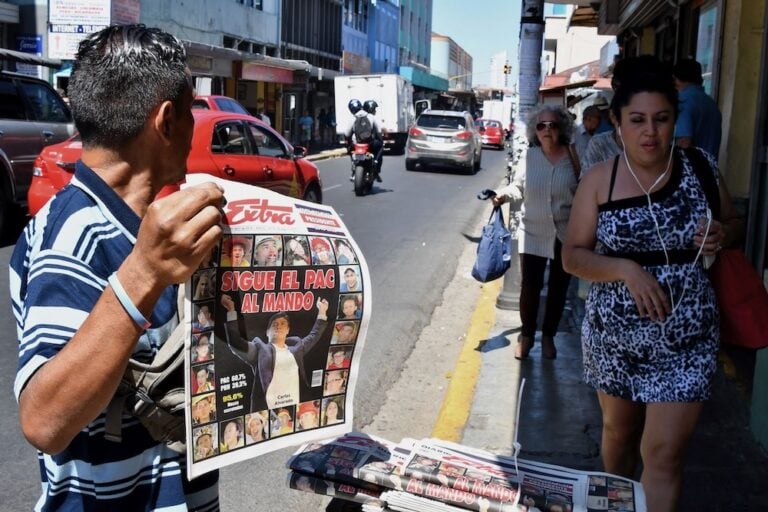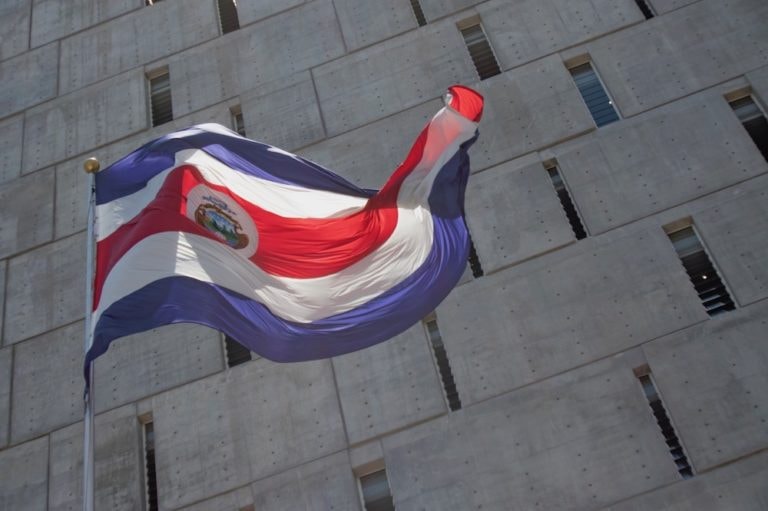(IAPA/IFEX) – The following is a 2 April 2001 IAPA press release: IAPA urges Costa Rican government to reform legislation which protects public officials Miami (2 April 2001) – The Inter American Press Association (IAPA) urged the Costa Rican government to reform criminal legislation on so-called “crimes against honour” and “desacato” (“insult”), as these laws […]
(IAPA/IFEX) – The following is a 2 April 2001 IAPA press release:
IAPA urges Costa Rican government to reform legislation which protects public officials
Miami (2 April 2001) – The Inter American Press Association (IAPA) urged the Costa Rican government to reform criminal legislation on so-called “crimes against honour” and “desacato” (“insult”), as these laws restrict the exercise of freedom of expression and the press, in contravention of international human rights treaties which the country has ratified.
The IAPA’s request comes after a meeting that Costa Rican government officials and executives of the daily La Nacion were to have held on 30 March under the auspices of the Inter-American Commission on Human Rights (IACHR) failed to take place. The meeting was called by the IACHR to explore initiatives that would lead to the reform of those laws that grant public officials special protections at the expense of the right to information.
The IAPA’s position, as expressed by its president, Danilo Arbilla, in a letter to Costa Rican President Miguel Angel Rodríguez, stems from a Costa Rican court’s failure to recognise the IACHR’s authority. The IACHR prescribed precautionary measures in connection with the sentencing of journalist Mauricio Herrera Ulloa and the daily La Nacion.
In both cases, the charges stemmed from the journalist’s articles published in La Nacion in 1995. The journalist had reported on financial scandals implicating Félix Przedborski, a former honorary ambassador for Costa Rica to the International Atomic Energy Organisation, based in Vienna, Austria. The journalist reported on questions raised in recognised European publications, such as Le Soire Ilustre, La Libre Belgique, and Der Spiegel. In November 1999, the judges decided that La Nacion had not been able to prove the allegations reported on by the European newspapers.
In February, following the rejection of an appeal to the Supreme Court filed by the defendants, the IAPA called the decision “an excessive, unfortunate and precedent setting act of censorship and an attack against basic freedom of expression principles.”
Following is the text of a letter sent today to the Costa Rican President by Arbilla:
“The Inter American Press Association is extremely concerned over the development of the case involving the sentencing of journalist Mauricio Herrera Ulloa and civil action against the daily La Nacion. The rulings set a negative precedent which is frightening for the press in Costa Rica and may be used by public officials to avoid criticism and threaten those who are critical. This could have serious consequences for your country’s democracy.
We know that despite the precautionary measures prescribed by the Inter-American Commission on Human Rights, noting that the sentence should not be carried out while the case is still being considered, the Criminal Chamber of the First San José Judicial Circuit has failed to recognise the IACHR’s jurisdiction and has ordered that the sentence be executed. As a result, the IACHR has asked the Inter-American Court of Human Rights to decree provisional measures to protect the journalist and the daily.
We are particularly concerned that the Costa Rican government failed to attend a 30 March meeting convoked by the IACHR to consider a friendly solution, which would have included a discussion of changes to the criminal legislation on so-called “crimes against honour” and “desacato”. These laws restrict the exercise of freedom of expression and the press, in contravention of international human rights treaties ratified by Costa Rica.
We trust in Costa Rica’s position in support of human rights, currently exhibited by the fact that the Organisation of American States’ general assembly will be held in your country, and urge you to exercise your authority and ensure that the necessary means are put into place so that this matter can be resolved in accordance with the Constitution. In addition, we urge you to see to it that legislation is reformed as soon as possible so that public officials are no longer granted special privileges and protection at the expense of the public’s right to be informed.
Furthermore, we ask your government to join IACHR in its request to the Court to issue provisional measures, so that the case is favourably resolved.”


